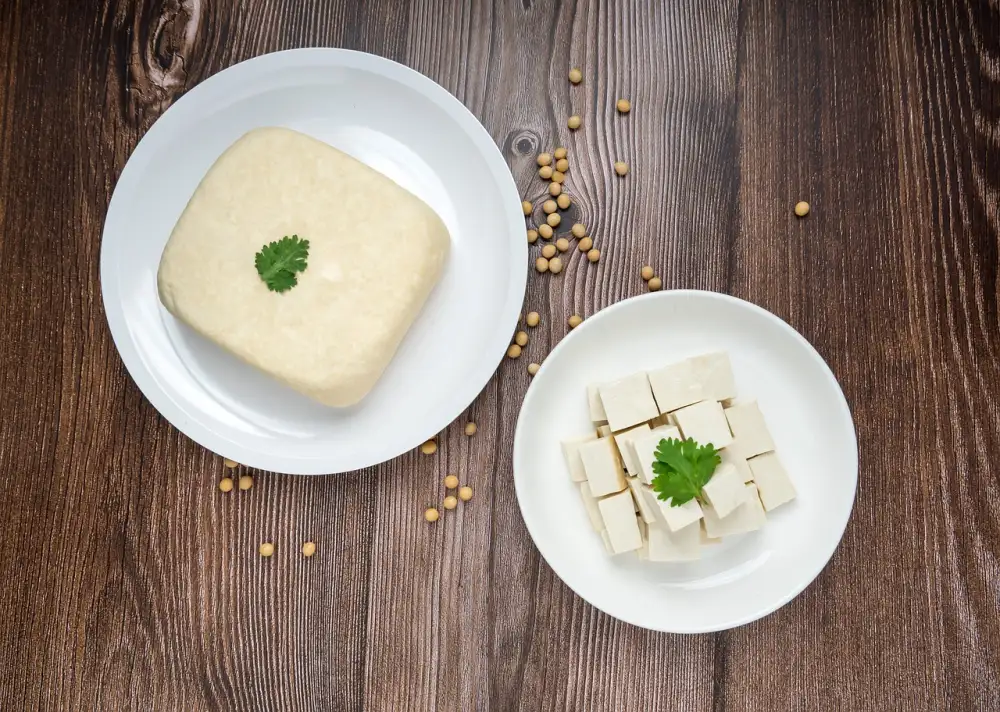Savor the Nutritional Power of Soya Beans: A Delightful Addition to Your Culinary Repertoire

Soya beans, also known as soybeans, are a versatile legume that has been cultivated for thousands of years. Originating in East Asia, these small golden beans have made their way into cuisines all over the world. With their mild and nutty flavor, soya beans add depth and richness to a wide range of dishes. Whether you're a vegetarian looking for plant-based protein or simply want to explore new flavors, soya beans are a delightful addition to your culinary repertoire. Let's dive into the nutritional power and health benefits of this incredible ingredient.
Nutritional Value of Soya Beans
Soya beans are not only delicious but also packed with essential nutrients. They are an excellent source of high-quality protein, containing all the essential amino acids needed by the body. Soya beans are also rich in dietary fiber, which aids digestion and promotes a healthy gut. Additionally, they are a great source of vitamins and minerals such as iron, calcium, magnesium, and potassium. Consuming soya beans regularly can contribute to a well-balanced diet and provide numerous health benefits.
Health Benefits of Soya Beans
Soya beans are not only delicious but also incredibly nutritious. They are packed with essential nutrients that can benefit your overall health. Firstly, soya beans are an excellent source of plant-based protein, making them a great option for vegetarians and vegans. Protein is essential for building and repairing tissues in the body.
Additionally, soya beans contain high levels of fiber, which aids in digestion and helps to maintain a healthy weight. The fiber content also helps to regulate blood sugar levels, making it beneficial for individuals with diabetes.
Furthermore, soya beans are rich in antioxidants such as isoflavones. These compounds have been linked to various health benefits, including reducing the risk of heart disease and certain types of cancer.
Soya beans are also a good source of vitamins and minerals like folate, iron, calcium, and potassium. These nutrients play vital roles in maintaining bone health, boosting the immune system, and supporting overall well-being.
Incorporating soya beans into your diet can contribute to better heart health, improved digestion, weight management, and reduced risk of chronic diseases. So why not start enjoying the numerous health benefits that soya beans have to offer?
Culinary Uses of Soya Beans
Soya beans are incredibly versatile in the culinary world, offering a wide range of uses that can elevate any dish. One popular way to enjoy soya beans is by making soya milk, which can be used as a dairy-free alternative in various recipes such as smoothies, soups, and desserts. Soya beans can also be transformed into tofu, a protein-rich ingredient that adds texture and flavor to stir-fries, salads, and even desserts.
Another culinary use of soya beans is the creation of tempeh, a fermented soybean product that is often used as a meat substitute in vegetarian and vegan dishes. Tempeh can be marinated and grilled, added to sandwiches or salads, or crumbled and used as a topping for pasta or pizza.
Soya beans are also commonly used to make miso paste, a staple in Japanese cuisine. Miso adds depth and umami flavor to soups, marinades, dressings, and sauces. Additionally, soya beans can be ground into flour to make gluten-free baked goods like breads, cookies, and pancakes.
Incorporating soya beans into your culinary repertoire not only expands your options but also enhances the nutritional value of your meals. So why not experiment with these delightful legumes and discover new ways to savor their unique flavors?
Soya Beans in International Cuisine
Soya beans have made their way into cuisines all around the world, adding a unique touch to various dishes. In Asian cuisine, soya beans are a staple ingredient in dishes like tofu, miso soup, and soy sauce. In South American cuisine, they are used to make traditional dishes like feijoada and empanadas. In African cuisine, soya beans are often ground into flour to make porridge or used in stews and soups. With their versatility and ability to enhance flavors, soya beans have become an integral part of international culinary creations.
How to Cook Soya Beans
To cook soya beans, start by rinsing them thoroughly under cold water to remove any dirt or debris. Then, soak the beans in water overnight or for at least 8 hours. Drain and rinse the soaked beans before cooking.
Next, place the soaked beans in a large pot and cover them with fresh water. Bring the water to a boil over high heat, then reduce the heat to low and let the beans simmer for about 1 to 2 hours, or until they are tender but not mushy.
You can also cook soya beans in a pressure cooker for faster results. Simply follow the same steps of soaking and rinsing the beans, then place them in the pressure cooker with enough water to cover them. Cook on high pressure for about 20-30 minutes.
Once cooked, you can use soya beans in various dishes like soups, stews, salads, or even as a meat substitute in vegetarian recipes. They have a mild flavor that easily absorbs other flavors, making them versatile in different cuisines.
Remember to season your cooked soya beans with salt or other spices according to your taste preferences. Enjoy the nutty and creamy texture of these delicious legumes!
Soya Bean Recipes to Try
1. Soya Bean Salad: Toss cooked soya beans with fresh vegetables like cherry tomatoes, cucumber, and bell peppers. Drizzle with a tangy vinaigrette for a refreshing and nutritious salad.
2. Soya Bean Stir-Fry: Sauté soya beans with your favorite vegetables like broccoli, carrots, and mushrooms. Add some soy sauce and ginger for an Asian-inspired dish that is both flavorful and satisfying.
3. Soya Bean Soup: Simmer cooked soya beans with vegetable broth, onions, garlic, and spices of your choice. Blend it all together for a creamy and comforting soup that is packed with protein.
4. Soya Bean Burgers: Mash cooked soya beans with breadcrumbs, onions, garlic, and spices. Form into patties and grill or bake them until golden brown. Serve on a bun with your favorite toppings for a delicious vegetarian burger option.
5. Soya Bean Curry: Cook soya beans in a rich tomato-based curry sauce along with onions, garlic, ginger, and aromatic spices like cumin and coriander. Serve over rice or with naan bread for a hearty and flavorful meal.
These recipes showcase the versatility of soya beans in various culinary creations. Experiment with different flavors and ingredients to discover new ways to enjoy the nutritional benefits of this amazing legume.
Tips for Buying and Storing Soya Beans
When it comes to buying and storing soya beans, there are a few tips to keep in mind. First, always choose high-quality beans that are free from any signs of moisture or damage. Look for beans that have a shiny, smooth surface and a uniform color.
It's best to buy soya beans from a reputable source, such as a trusted grocery store or health food store. This ensures that you are getting fresh and safe beans.
Once you bring the soya beans home, store them in an airtight container in a cool, dry place. Avoid exposing them to direct sunlight or heat, as this can cause the beans to spoil faster.
To extend their shelf life, you can also store soya beans in the refrigerator or freezer. If storing in the refrigerator, make sure they are kept in an airtight container or sealed bag to prevent moisture absorption.
Before using the soya beans, give them a thorough rinse under cold water to remove any dirt or debris. Soaking the beans overnight can help reduce cooking time and improve digestibility.
By following these tips for buying and storing soya beans, you can ensure that you always have fresh and nutritious ingredients on hand for your culinary adventures.
In conclusion, it is clear that soya beans are a versatile and nutritious addition to any culinary repertoire. With their high protein content, essential amino acids, and numerous health benefits, they provide a powerhouse of nutrition. Whether you choose to incorporate them into your daily meals or explore the diverse world of international cuisine, soya beans offer endless possibilities for delicious and healthy dishes. So why not embrace the versatility of soya beans and elevate your cooking to new heights? Start experimenting with these incredible legumes today and unlock a world of flavors and nourishment!
Published: 22. 11. 2023
Category: Food



